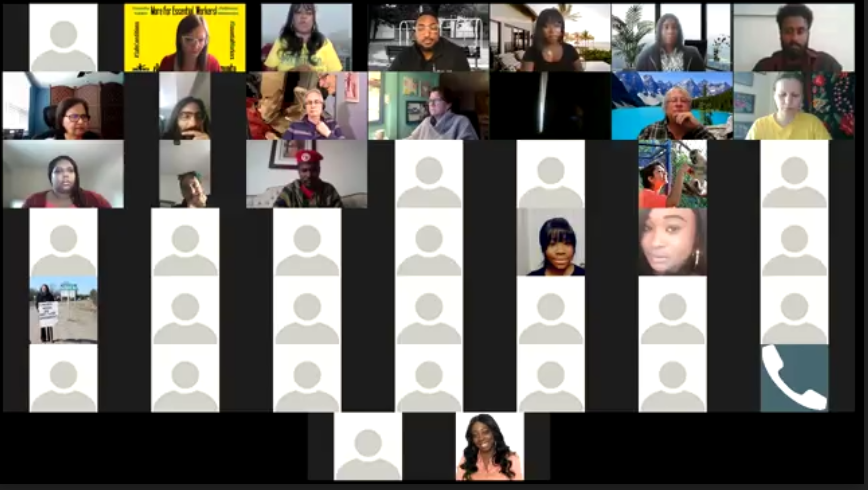BY: AYESHA KHAN
On Wednesday May 5, 2021, Jane Finch Action Against Poverty in conjunction with Black Creek Food Justice Network, Jane Finch Education Action Group and Jane Finch Housing Coalition hosted a virtual public event speaking out against various injustices they feel have been wrought against the community.
The event, called “ENOUGH IS ENOUGH”, was hosted at 6:00 pm via Zoom. Participants heard from various speakers on the different issues affecting Jane and Finch.
Co-host and JFAAP member Butterfly GoPaul claimed that the issues exacerbated and brought to light by COVID-19 have long existed, citing food insecurity, over-policing, pushout rates and systemic neglect. She also connected these issues to labour rights struggles such as the fight for paid sick days, and worker deaths.
Sam Tecle, another co-host and also JFAAP member, dwelled upon the plight of personal support workers who were forced due to low wages to take up multiple jobs in different long term care homes, contributing to the spread of COVID-19.
Food justice activist and resident Ohemaa Boateng shared her concerns and experiences with food security as well. “Where you live, who you are and what you look like shouldn’t determine your access to culturally relevant food.” She voiced, while suggesting the city make parks and hydro corridors accessible for community residents to garden and grow food. She suggested a garden in every neighbourhood school, to help feed communities.
According to Ohemaa, Jane and Finch meets conditions qualifying it as a food desert. Poor quality produce and paying more for healthy food options have left residents disadvantaged and less healthful than wealthy counterparts.
She showed attendees a video of her son with backyard chickens they were keeping. Unfortunately, she was forced to rehome her chickens, but argues that people are not asked to do the same in other areas of the city.
Participants also heard from Melicia Henry of the Jane-Finch Education Action Group. Herself a mother of an elementary student with health conditions, Melicia spoke of the difficulties her family and families throughout the community have faced.
“The Ford government has closed in-person learning time and time again without considering what it does to children’s mental health.” Said Melicia of the back-and-forth between online and in-person learning. She argued that this transition was met with no support for children, and spoke of the difficulties with having banned playgrounds. “A lot of people here live in apartment buildings and don’t have equitable access to space.” She argued.
“Some kids will fall further behind.” Melicia lamented, and spoke of the already high pushout rate of children leaving school due to systemic neglect, poverty and complex cultural conditions. “We don’t have private tutors on lock.”
Kemisha, resident and member of Jane-Finch Education Action, parent of a college-aged child, spoke of the “poor excuse for computer labs” that students had access to in the first place, at community schools.
Amanda Coombs, local community worker and tenant rep for 10 years, spoke of the many inequities regarding vaccine rollout, food security, and eviction policing. She gave several tips on watching for children’s mental health during this challenging time, and what to look out for in depressed youth such as sleeping too much and having a pessimistic outlook.
Closing the event powerfully was last speaker Anna Kay Brown, a local resident and community worker at the Jane-Finch Community and Family Centre. Anna Kay emotionally shared that she had COVID-19 and was hospitalized, whence it became evident that housing was an issue.
“If you live in a small unit with a family, how can you safely quarantine?” Anna Kay posed an impossible question to participants. She also spoke of the ban on evictions, out of worry for what might happen to families when the moratorium on evictions would be lifted and the floodgates could open for evictions of low income and racialized families.
To finish off the event, Butterfly asked the crowd to hold a moment of silence for people who had lost lives on new developments, for Black and racialized bodies neglected and forgotten, and for the migrant workers risking their lives to feed Canadians. Participants came together virtually, held communion over collective trauma, and shared the names of family and friends they had loved and lost, bringing home the prominent and tangible reality that the political is deeply personal, especially in Jane and Finch.

